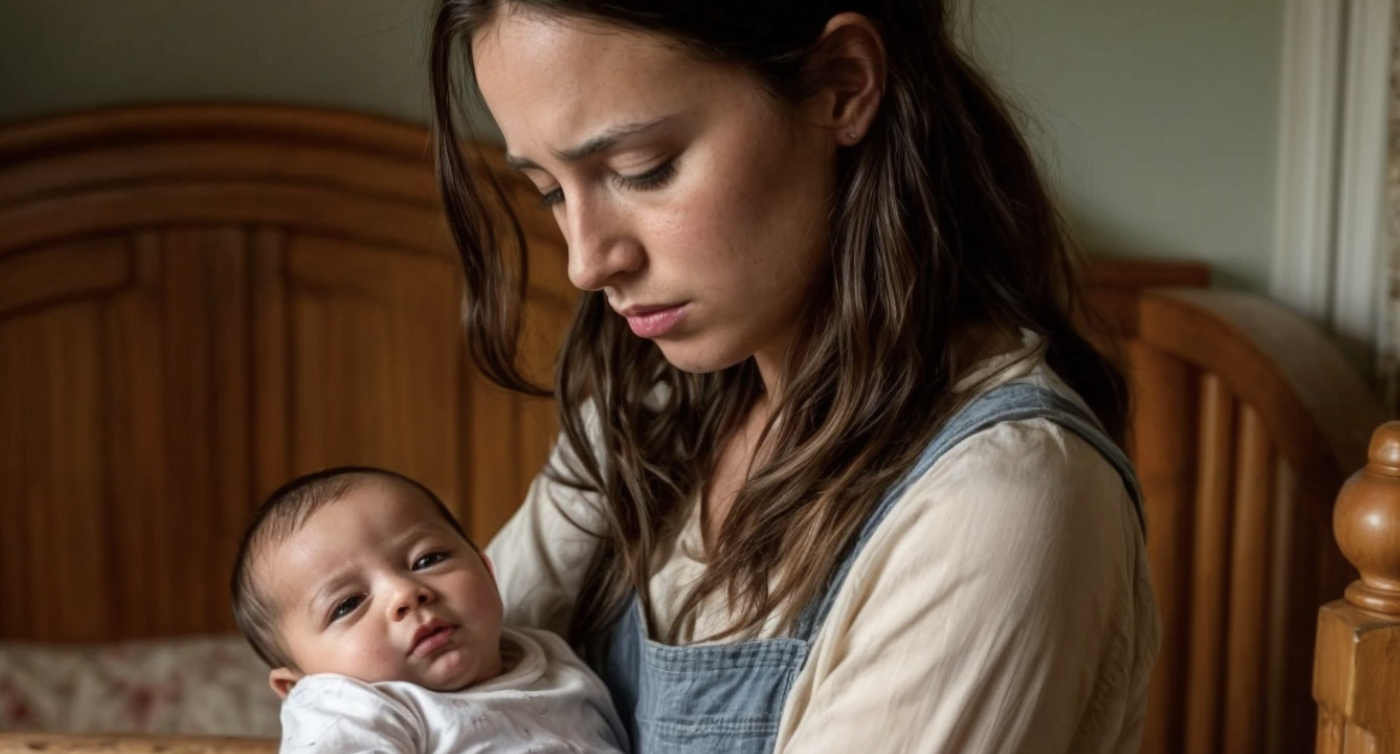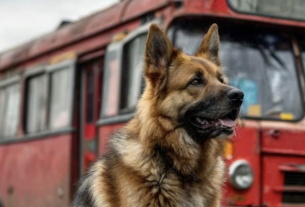Marina and Irina looked so much alike that they seemed like two drops of water. Even their mother, Olga Viktorovna, joked that she would soon start tying colorful ribbons to their wrists—so she wouldn’t mix up who to give extra food to and who to punish for a broken cup. But the girls just laughed at such jokes. Although outwardly almost indistinguishable, inside they grew increasingly different with each passing year. Marina, the elder by just ten minutes, had a serious gaze and a slightly frowning expression from childhood. Irina, as if born with a smile, filled the house with her clear, contagious laughter.
They never competed with each other: they shared all games, secrets, and dreams equally. They went to first grade together, sat at the same desk, crammed for their final exams side by side. And when it was time to grow up, they again held hands as they got on the bus that took them to the city—for a new life, college studies, and long-awaited freedom.
The first months in the city overwhelmed them with possibilities and freedom. But one evening, that joy was shattered by a phone call. Their father, Gennady’s voice, sounded strange and broken:
“Girls, Mom is very sick. Really bad. I can’t manage alone.”
Marina’s heart clenched with fear. She immediately understood: this was not just an illness. Returning home, she found Irina cheerfully chatting on the phone with a new acquaintance.
“We need to talk,” Marina quietly said when Irina ended the call. “Mom is ill. I think we need to come back.”
Irina raised her eyebrows in surprise:
“Come back? Are you crazy? What about our studies? We’ve just started! Dad will manage, and the neighbors will help. Why give everything up?”
This was their first real argument. Words flew like sharp stones: accusations of selfishness clashed with reproaches of excessive self-sacrifice. Marina looked at her sister and didn’t recognize her. Where had that girl gone, for whom family meant everything?
The next morning Marina silently packed her things. Irina deliberately turned to the window, pretending not to care. She didn’t say goodbye. Marina simply closed the door behind her, leaving her old life, her dreams, and, as she then thought, her sister behind.
The village met her with cold, damp silence. Caring for their sick mother proved overwhelming. Olga Viktorovna lost strength day by day, becoming helpless and irritable. Marina was torn between the house, the chores, and the injections she gave with trembling hands. Loneliness pressed down on her shoulders, bending her to the ground.
One day, while helping her mother change clothes, Olga Viktorovna clumsily fell. Marina screamed in fear, unable to lift her alone. Running to the porch, she called for help. The neighbors’ door opened—and there stood Andrey, their former classmate, now a local tractor driver. Without a word, he gently lifted the woman and carefully laid her on the bed, soothingly touching Marina’s shoulder:
“Hold on. If you need anything, shout, I’m here.”
His support became the only light in the darkness. But their father, on the contrary, grew more distant. He came home late, smelling of someone else’s perfume, avoided conversations, hid his eyes. One day, he simply didn’t return. The next day he called briefly and said:
“I’m leaving. To Zoya’s, I work at the store. I’ll send money.”
Marina put down the phone and stared into space for a long time. There were no more tears or rage—only emptiness. For the first time in months, she dialed Irina’s number. Shaking with hurt, she told her everything. The indifferent reply came:
“I’m sorry, Marina. Men… they’re all the same.”
The disappointment burned deeper than her father’s betrayal. She realized she was completely alone. Only Andrey remained by her side. He fixed the roof, brought groceries, helped with chores. Marina felt gratitude, but also bitterness—what was she enduring all this for? What had she gained in return?
Her mother died quietly at night, in her daughter’s arms. Marina sat with her until dawn, feeling neither tears nor pain—only bottomless emptiness. The first person she called again was Andrey. He came immediately, took charge of everything, arranged the funeral, protected her from intrusive condolences. Marina shut herself off, turning into a cold wall no one could penetrate.
Irina did not come to the funeral, citing exams and important matters. This refusal was the last straw. Marina understood: their bond was broken forever.
After the funeral, the house emptied. The silence pressed on the walls, as if ready to crush her. Seeing her state, Andrey practically moved in. He didn’t force conversations, just stayed nearby, creating the illusion of life. Marina took a job as a milkmaid on a farm. The hard work exhausted her, allowing her to fall asleep without dreams.
Almost a year passed. One evening, Andrey came back from the field, sat next to her on the porch, and without looking into her eyes said:
“Marina, marry me. We can’t be alone all our lives, right?”
The wedding was modest, village-style. Neighbors and a few of Andrey’s friends came. Marina stood in a simple white dress, mechanically accepting congratulations, feeling how her life was turning again into a path where she was only a passenger.
Life with Andrey was unexpectedly warm and calm. He was a caring and reliable husband. Together they repaired the roof, rebuilt the fence, planted flowers under the windows. For the first time in many years, Marina felt quiet, almost forgotten happiness—one that doesn’t attract attention but warms from within.
It was during this quiet period that Irina unexpectedly called. Her voice sounded strange and cheerful. She chattered about her successful city life, about her husband she met at a party, and casually mentioned that she was pregnant. Marina listened silently, answering briefly. After the call, an unpleasant feeling lingered—their worlds had become too different, separated by a deep chasm.
A year later, another call came—from the police this time. A cold, official voice informed her that Irina had died suddenly of a heart attack. She left behind a little son, Petya. Her husband was on a long voyage, unreachable.
“If no one comes for the child in the next few days, he will be sent to an orphanage,” the officer said matter-of-factly.
Marina sank into a chair, her head spinning—the world blurred before her eyes. Irina was dead. Somewhere in a distant city was her little son—her flesh and blood, a lonely child with nowhere to go. The decision came instantly, pushing out all other thoughts.
“I will take him,” she said quietly but firmly to the empty room.
That evening, she told Andrey everything. He listened, frowning, then sharply replied:
“Are you crazy? Taking someone else’s child? We need to have our own, not pick up strays. He has a father; let him take care of him when he returns.”
“This is my nephew, Andrey! I can’t abandon him!”
The argument was brief but harsh. In the end, her husband gave an ultimatum:
“Either me or this child. Choose.”
Marina looked into his suddenly darkened eyes and understood: there was no choice. In the morning, while he was at work, she packed a small bag, put her wedding ring on the table, and left on the first bus to the city.
The orphanage greeted Marina with the smell of chlorine and children’s crying. A tired caretaker brought out Petya to her. The boy was thin, in a worn-out t-shirt, with big frightened eyes that so resembled Irina’s. He clung to the adult woman’s leg, warily looking at the unfamiliar aunt. Marina looked at him, and a wave of love and pain rose in her chest, taking her breath away. This child was part of her family. Her last connection to her loved ones. She quickly completed the formalities, dressed Petya in the clothes she brought, and tightly holding his hand, stepped out into a new, still unknown life.
At home awaited emptiness. Andrey’s things had vanished without a trace—no note, nothing. Marina was left alone with a sick and frightened child in her arms. Neighbors came to help: they brought an old stroller, a crib, a sack of potatoes. Kindness still existed in the world, but food and advice were not enough to deal with the main question—how to live on.
Petya struggled to adjust to the new environment. He cried at night, woke up frightened, was often sick. Once, when his fever lasted for the third day, Marina, exhausted and weak, in a moment of despair called Andrey. She didn’t ask for help, just wanted to hear his voice.
“He’s got a fever? Well, call an ambulance, why are you calling me?” he said shortly and hung up.
That was the last straw. Marina realized she could count on no one. Gathering her last money, she took Petya to the regional hospital.
On the train, among the usual clutter of things, someone left an old worn suitcase in the compartment. Marina was about to give it to the conductor when she noticed an attached note: “For Marina. From Nikita. Here’s something for the beginning.” Inside neatly lay bundles of money.
She sat, stunned, unable to understand what was happening. When the train stopped, a tall man with kind but tired eyes was already waiting for her on the platform.
“Marina? I’m Nikita, Irina’s husband,” he introduced himself. “I just returned from a voyage yesterday. I was told everything… about you, about your sacrifice. Thank you. This money is my honest earnings. Take it. You and Petya need it now more than anything.”
They organized Irina’s funeral together. The whole village came. Standing by the fresh grave, Marina and Nikita held Petya’s hands and understood: it was this child who now bound them forever.
The decision was made quickly. Nikita sold his city apartment and bought a spacious house in the suburbs. Together they adopted Petya, becoming his true parents. Marina moved out of the empty village house, taking with her only old photographs and memories.
A new chapter of her life began with quiet joy. Caring for her son, arranging their new home, long talks with Nikita—all gradually healed the scars of the past. One evening, after putting Petya to bed, Marina sat in the kitchen looking at the stars outside the window. Her thoughts naturally returned to the path she had walked: her father’s betrayal, her sister’s coldness, sacrifice, loneliness, brief happiness with Andrey and his harsh ultimatum. But she had endured. And now she sat here—in a warm home, with loved ones nearby. She had become different—strong, mature, capable of forgiveness.
Old notes, miraculously preserved from the time when she was studying, lay on the shelf. Marina took them out and turned to Nikita, who had just entered:
“I want to finish my studies. I want to enroll in correspondence courses.”
He smiled and embraced her:
“Of course. You will definitely succeed.”
For the first time in many years, Marina felt not just happiness but deep inner peace. She had found her place. Ahead was a whole life full of new opportunities, hopes, and meaning.



